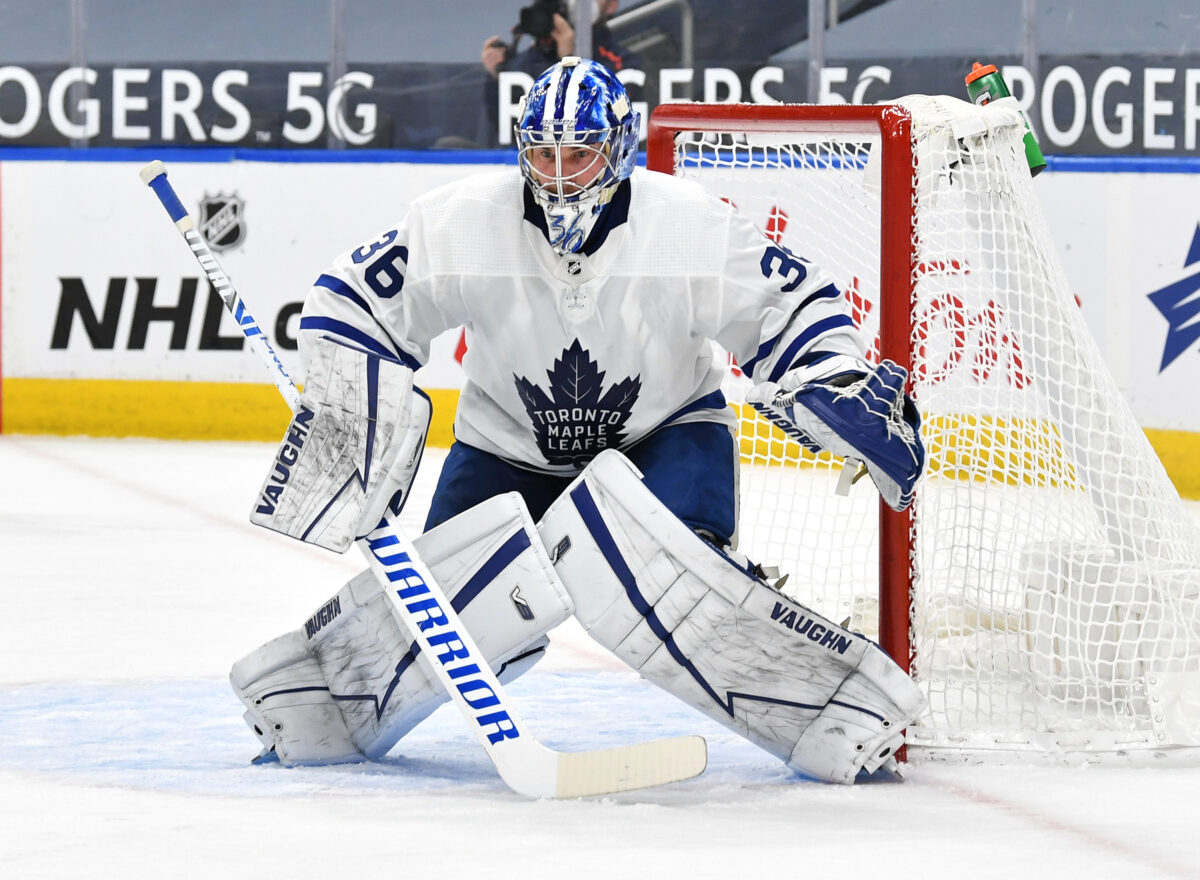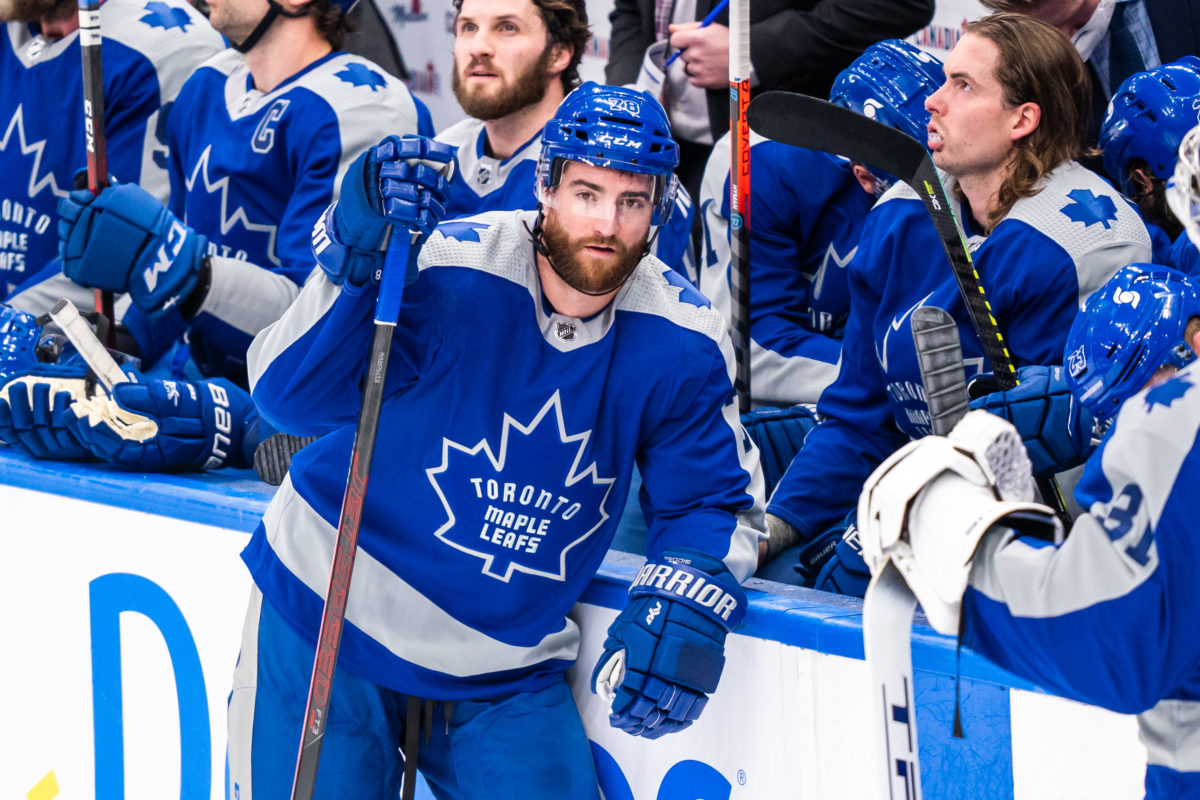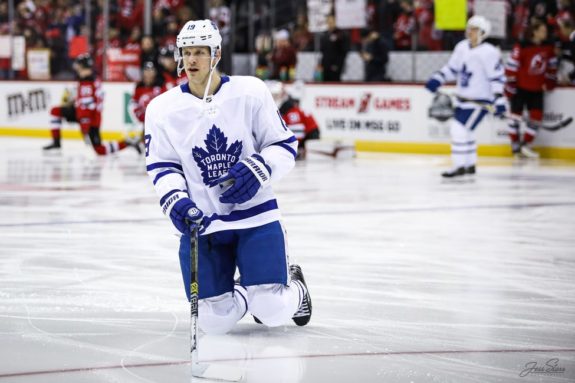It’s no secret that the Toronto Maple Leafs always provide their fans with lots to talk about, and one of the most recurring topics is contracts, both good and bad. The Maple Leafs did it right by drafting most of their core rather than trading assets for already-established players, but that hasn’t stopped the criticism. Beginning with the signing of William Nylander in 2018-19, general manager Kyle Dubas then locked up Auston Matthews and Mitch Marner and dropped a pretty penny to bring in hometown boy John Tavares.
The team’s “core four” is making a combined $40 million. Although investing almost half of the team’s cap in their top players is smart, some will always question whether or not the Maple Leafs should have driven a harder bargain and spread the money out. I’ll put it this way, if Dubas had lost either Matthews or Marner instead of signing them, the outcry would have been far worse than it is now.
You could make the argument that, yes, some of these players are overpaid, but that shouldn’t be an issue if their depth players are signed to cheap, affordable contracts. In the end, I would much rather commit a lot of money to my best players than overpay my bottom six. So, as people continue to talk about the money spent on the Maple Leafs’ “core four”, here’s a look at some of Toronto’s best-value deals, in no particular order.
William Nylander (6 years, $6.9m average annual value (AAV), 3 years remaining)
What a path Nylander took to get here. The Maple Leafs’ first-round pick in 2014 left a bad taste in everyone’s mouth when he held out for the start of the 2018-19 season during his contract negotiations. He didn’t agree to a deal until Dec. 1 of that season and had a rough time when he did come back. He finishing with only 27 points in 54 games, which was to be expected considering he joined the league when the rest of the league was in mid-season form.

From that point on – and amid the “overpaid” and “overrated” comments from both the fans and media – Nylander developed into one of the Maple Leafs’ most consistent forwards. He rebounded with his two best seasons to date, a 59-point campaign through 68 games in 2019-20 and a 42-point campaign through 51 games last season. He was also by far their best player in the playoffs, leading the team with five goals and eight points in seven games. Now, it seems he’s won the fans over again, at least for the most part.
That Nylander went from overpaid to underpaid so quickly is comical to me but also true. Considering the production the Maple Leafs we’re getting out of him prior to when he signed his extension, you could now make the argument that he should have gotten more at the time.
Jack Campbell (2 years, $1.65 million AAV, 1 year remaining)
This one is obvious. After watching Campbell perform in 2020-21, you would think he made Carey Price money. Okay, that’s a stretch considering the sample size is 22 games, but if he performs at even half that level in 2021-22, Campbell will be a bargain for the Maple Leafs.

For a goalie who was acquired to be the recently-departed Frederik Andersen’s backup, Campbell could not have given the Maple Leafs more if he tried. He finished the season with a whopping 17-3-2 record, a goals-against average (GAA) of 2.15, and a save percentage (SV%) of .921. It’s hard to imagine he won’t be looking for a significant payday if he plays even a fraction as well this season, so they should enjoy him at this price while they can.
T.J. Brodie (4 years, $5 million AAV, 3 years remaining)
This final spot came down to either Brodie or Jake Muzzin, and I decided on Brodie because he’s making less money and is a bit younger. For years, the main topic of discussion was improving the team’s defence. With both of these players, Toronto’s back end has a different feel to it.

Brodie, specifically, gave the Maple Leafs the top-pairing defenseman they were looking for last season. Morgan Rielly suffered a revolving door of below-average defence partners for years, including Matt Hunwick, Roman Polak, Ron Hainsey, and Cody Ceci, but Brodie added real stability to the pairing. While he was relatively quiet offensively last season, he was often their best defensive defenseman and did all the little things right. If he maintains that level of play for the duration of his contract, his $5 million AAV is going to seem like next to nothing.
Jason Spezza (1 year, $750,000 AAV, 1 year remaining)
There are so many things to say about Spezza. When he signed his initial one-year contract ahead of the 2019-20 season, expectations were low. He was advertised to play bottom-six minutes and serve as a veteran presence for the young core, and that’s it. But ever since he put on the Maple Leaf jersey (or at least after Mike Babcock was fired), he has proven to be so much more than that.

I think everybody suspected that Spezza was on the brink of retirement when he initially signed in Toronto. Now, here we are, with the Toronto native signing his third consecutive one-year contract, and seems happy to come back for more as long as his body is up for it. The 2020-21 season was his best in years, with 30 points in 54 games along with five points in seven games in the playoffs. Yet, his value to the team reaches far beyond his on-ice play.
I could come up with a million reasons why Spezza’s contract is a good one, but when you consider that he just signed his third league-minimum deal and threatened to retire if another team claimed him off waivers, it’s easy to see why he’s one of the team’s best value contracts.
Justin Holl (3 years, $2 million AAV, 2 years remaining)
Boy, oh boy. If you told me I would be writing this, say, six weeks ago, I would have laughed. But this offseason has proved how valuable Holl’s contract is to the Maple Leafs. I’ll be honest, I was super skeptical about Dubas’ decision to expose Jared McCann in the expansion draft over Holl, but after seeing how valuable right-handed defensemen are around the league, I’m more than happy with the decision.

The first contract that comes to mind is the eight-year, $9.5 million AAV deal Seth Jones signed with the Chicago Blackhawks. Then, I think about Rasmus Ristolainen, who was traded to the Philadelphia Flyers for a first and a second-round pick. Then you look at the big payday for players like Dougie Hamilton and Neal Pionk, and it speaks volumes about the market for right-handed defensemen. I’m not comparing Holl to those players specifically, but rather the value the position holds, and, for that reason alone, Holl has one of the better contracts on the team.
Honourable Mention – Michael Bunting (2 years, $950,000 AAV, 2 years remaining)
I couldn’t put Bunting on my list because he hasn’t played a game for the Maple Leafs yet, so it’s hard to say his contract is a bargain. But I’m very high on this player, and the fact that Toronto has him for two years could end up being a steal if he proves to be worth it this season.
The Maple Leafs will be giving Bunting his first real shot at NHL minutes this season. He was a late call-up for the Arizona Coyotes in 2020-21 but scored ten goals in a 21-game sample size. He’s a player who has a never-ending motor and will give the team everything he’s got, night in and night out. I know it’s optimistic, but if he has a breakout season with the Maple Leafs in 2021-22, that $950,000 AAV is going to look amazing.
Overview
To reiterate my earlier point, it’s not out of left field to suggest that Toronto has some hefty contracts. But on the flipside, deals like the ones I just listed make up for the fact that half of the team’s budget is tied up in four players. There are certain things you can criticize Dubas for, but his ability to find valuable players at cheap prices is not one of them.
